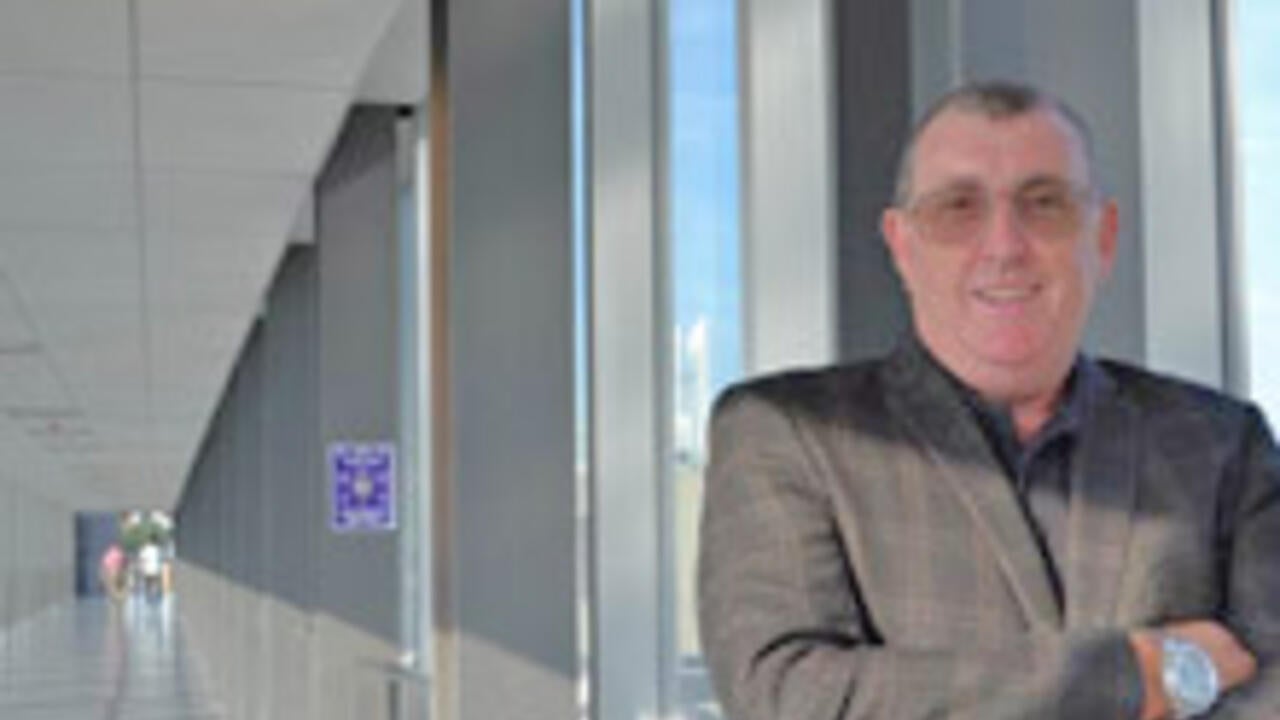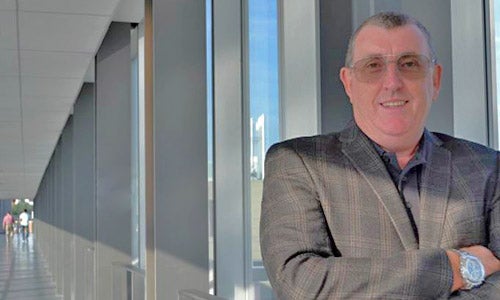
Waterloo prof helps engineering students survive the first year
Bob McKillop was honoured with a Waterloo Distinguished Teaching Award for a philosophy built on mentoring and coaching

Bob McKillop was honoured with a Waterloo Distinguished Teaching Award for a philosophy built on mentoring and coaching
By Heather Bean University Relations
During the first week of Civil Engineering’s foundational course, Bob McKillop takes an informal poll of the class.
“How many of you think the admissions department made a mistake when they let you in?”
Typically, he says, nearly half of his students raise their hands.
He can relate.
McKillop is a lecturer in the Civil and Environmental Engineering department, and a recent recipient of Waterloo’s Distinguished Teaching Award, but when he first walked into the classroom of 1A, he was a student: a 24-year-old former draughtsman. He’d been working at the Grand River Conservation Authority, and one of the engineers—a Waterloo grad himself—encouraged him to give engineering a try.
“When I came to Waterloo I felt seriously unready to be a university student. All these kids were four years younger than me and so on top of their math. That was thirty years ago and I can still remember it.”
When McKillop joined the department in 1999 after finishing all three degrees here, he was part of a task force to combat high first-year failure rates. One result—which became known as “the Bob Effect”—is a successful first-year philosophy built around hands-on mentoring and coaching from a senior faculty member. It’s been adopted across several programs in the Faculty of Engineering.
For CivEng students, McKillop is one of the first senior faculty members they really get to know.
“Week one I ask, ‘Who’s homesick?’ Week three I ask, ‘Who’s ready for midterms? How do you prepare?’ When midterms come back, I ask, ‘How can you diagnose what your midterms are telling you?’ “
Having that personal contact is key, he says. “When I was a student I know I was a number in first year. Now I try my best to know as many of my students on a first-name basis as I possibly can. They know my office door is always open and that they are welcome to drop by for a chat at any time.”
McKillop claims the Bob Effect is “common sense.” Most students, he says, just need some perspective on what they’re experiencing in first year. “A lot of them have never failed a test, and they just need someone to tell them, ‘Relax, it’s okay, I failed midterms too when I was your age.’ I explain that their teachers are pushing them to the next level of their learning. When they get that, they understand.”
“The coolest part is seeing them come into my fourth-year class and telling them, ‘You don’t walk and talk like a first year anymore. You walk and talk like an engineer.’
“They’re going to grow so much—they just need to hear it.”

Read more
Here are the people and events behind some of this year’s most compelling Waterloo stories

Read more
Irfhana Zakir Hussain works to strengthen Waterloo’s capacity to withstand and recover from climate-related health crises

Read more
Meet the 14 exceptional students representing Waterloo’s newest grads
The University of Waterloo acknowledges that much of our work takes place on the traditional territory of the Neutral, Anishinaabeg, and Haudenosaunee peoples. Our main campus is situated on the Haldimand Tract, the land granted to the Six Nations that includes six miles on each side of the Grand River. Our active work toward reconciliation takes place across our campuses through research, learning, teaching, and community building, and is co-ordinated within the Office of Indigenous Relations.